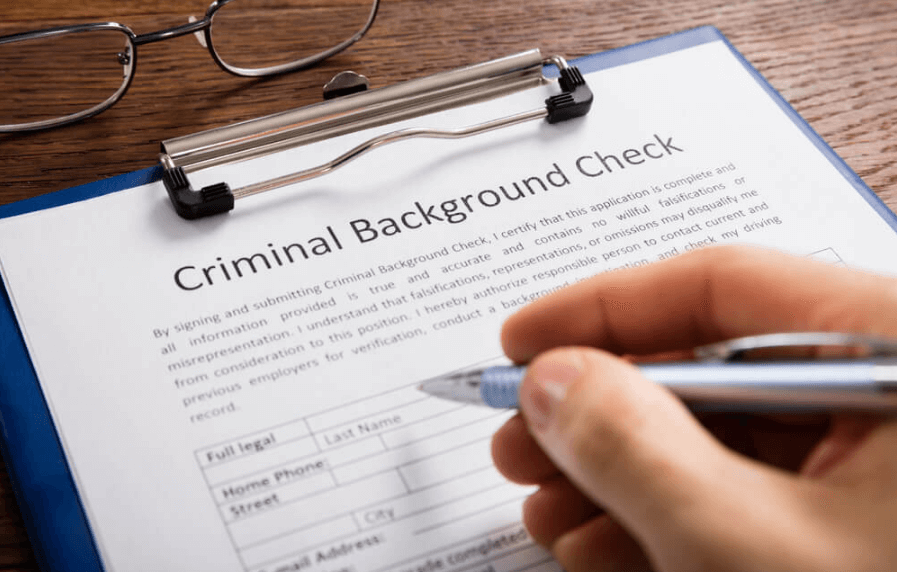Crucial Things To Know About Criminal Record Checks

Criminal record checks are becoming increasingly important in today’s world. Whether you’re hiring a new employee, renting out property, or considering a business partnership, understanding someone’s background can help you make informed decisions. This guide will cover everything you need to know about criminal record checks, their importance, and how to conduct them effectively in the Indian context.
The Importance Of Criminal Record Checks
Performing criminal record checks is crucial for ensuring safety and trust in various situations. Employers often need to verify the history of potential hires to maintain a safe workplace. Landlords check prospective tenants to protect their property and other residents.
Conducting a criminal record check online provides a quick and efficient way to obtain this information. It’s essential to note that not all offences are equal. Some may be minor and unrelated to the situation at hand, while others could indicate a significant risk. Therefore, understanding the context of any criminal history is vital.
How To Conduct A Criminal Record Check
Conducting a criminal record check involves several steps. First, determine the type of check needed. For example, a basic check might suffice for some positions, while more sensitive roles may require an enhanced check. Basic checks typically include information on unspent convictions, while enhanced checks can reveal spent convictions, cautions, and even information held by local police that may be relevant to the role.
Next, gather necessary personal information, such as the individual’s full name, date of birth, and address history. It’s also important to obtain the individual’s consent before proceeding, as privacy laws mandate this in many jurisdictions. Once you have consent, use reliable sources to perform the check. Government databases, accredited private agencies, and criminal record check online services can provide accurate and up-to-date information.
It’s also beneficial to understand the differences between the types of checks.
For example, a police verification check in India offers different levels of scrutiny, from basic to thorough, which are crucial for positions involving vulnerable groups. Knowing the right type of check ensures you get the appropriate level of detail for your needs.
What To Look For In A Criminal Record Check
When reviewing the results of a criminal record check, consider several key factors to make a well-rounded assessment:
- Types of Offences: Different offences vary in severity and relevance. Look for violent crimes, theft, fraud, and other serious offences that could impact the individual’s suitability for a role.
- Frequency and Recency: Consider how often and how recently the offences occurred. A single minor incident years ago may be less concerning than multiple recent offences.
- Patterns of Behaviour: Look for patterns that indicate habitual behaviour. Repeated offences of the same nature could signal ongoing issues.
- Rehabilitation Evidence: Some individuals may have taken steps to rehabilitate themselves. Participation in rehabilitation programs or a long period without offences can indicate a positive change.
- Legal Requirements: Certain industries have specific legal requirements regarding criminal record checks. Ensure you understand and comply with these regulations.
Legal And Ethical Considerations
Conducting criminal record checks involves several legal and ethical considerations. It’s crucial to respect the individual’s privacy and handle their information responsibly. Always obtain explicit consent before performing a check. Be transparent about why the check is necessary and how the information will be used.
Additionally, it’s important to ensure that the process is fair and non-discriminatory. Avoid making decisions based solely on the existence of a criminal record. Instead, consider the nature of the offences, the context, and any evidence of rehabilitation. Comply with all relevant laws and regulations, such as the Information Technology Act, 2000, and the Right to Privacy ruling, to avoid legal issues.
In India, specific legislation dictates how criminal record information can be used. For instance, the Information Technology Act and the Supreme Court’s right to privacy ruling impose strict rules on data processing, requiring organisations to justify their need for criminal record data and ensure it is kept secure and used appropriately. Failing to comply with these regulations can result in significant penalties and damage to reputation.
Best Practices For Using Criminal Record Check Results
- Review the Context: Understand the circumstances surrounding any offences. Consider the nature of the crime, the time elapsed since it occurred, and the individual’s actions since then.
- Focus on Relevance: Evaluate how the criminal history relates to the specific situation. For example, a driving offence may be relevant for a delivery job but not for an office role.
- Consider Rehabilitation: Take into account any steps the individual has taken to rehabilitate themselves. Successful completion of rehabilitation programs or a long period without further offences can be positive indicators.
- Maintain Confidentiality: Keep the results of the criminal record check confidential. Share the information only with those who need to know and ensure it is stored securely.
- Make Informed Decisions: Use the information from the criminal record check as one factor in your decision-making process. Consider it alongside other relevant factors, such as qualifications, experience, and references.
Conclusion
Criminal record checks are an essential tool for maintaining safety and trust in various settings. By understanding how to conduct these checks and what to look for, you can make more informed decisions. Always consider the legal and ethical implications, and use the information responsibly.
Remember that everyone deserves a fair chance, so consider the context and evidence of rehabilitation when evaluating criminal records. Implementing best practices ensures a balanced and effective approach to using criminal record check results.
Read Also: CMO






